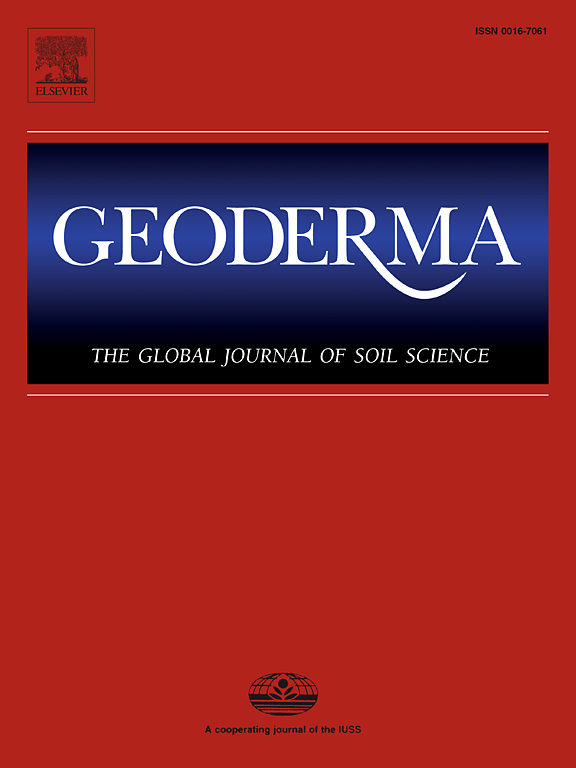Securing the future of soil science: Addressing global demographic barriers to engage youth and accelerate early careers
IF 5.6
1区 农林科学
Q1 SOIL SCIENCE
引用次数: 0
Abstract
The future of soil science depends on cultivating a diverse, well-equipped generation of scientists and citizens with strong soil connections. The demographic factors and structural barriers that influence youth engagement in soil science remain underexplored despite their importance in creating a more inclusive future of soil science. This discussion paper briefly examines some sociodemographic conditions that shape the landscape of early-career soil scientists, focusing on binary gender, age and regional disparities. The analysis draws on data from a structured questionnaire conducted with Young and Early Career Scientists Working Group (YECS) members of the International Union of Soil Sciences (IUSS) from 2022 to 2024. Results indicate increasing participation by young females in Latin America and the Caribbean and near gender equality in the European Union. However, persistent regional inequalities include gender-age gaps in the Near East and Northern Africa and delayed engagement in Sub-Saharan Africa. The limited YECS outreach in regions, such as North America (small sample size), combined with the absence of additional demographic indicators, such as queer identities and ethnic diversity, may lead to biased interpretations and hinder comprehensive understanding. In this regard, YECS has initiated key actions to address these demographic challenges, promoting international partnerships and culturally inclusive soil education. This discussion invites an exploration of sociodemographic implications that affect soil scientists globally. It offers actionable steps to envision a more connected and inclusive soil science community capable of addressing future environmental challenges.
确保土壤科学的未来:解决全球人口障碍,促进青年参与并加速早期职业发展
土壤科学的未来取决于培养多样化的、装备精良的、与土壤有着密切联系的新一代科学家和公民。影响青年参与土壤科学的人口因素和结构性障碍仍未得到充分探讨,尽管它们对创造更具包容性的土壤科学未来很重要。本文简要探讨了影响土壤科学家早期职业发展的一些社会人口条件,重点关注性别、年龄和地区差异。该分析利用了2022年至2024年国际土壤科学联盟(IUSS)青年和早期职业科学家工作组(YECS)成员进行的结构化问卷调查的数据。结果表明,拉丁美洲和加勒比地区年轻女性的参与增加,欧洲联盟的性别接近平等。然而,持续存在的区域不平等包括近东和北非的性别年龄差距以及撒哈拉以南非洲的延迟参与。yess在北美等地区的推广有限(样本量小),加上缺乏额外的人口统计指标,如酷儿身份和种族多样性,可能导致有偏见的解释,阻碍全面理解。在这方面,YECS发起了应对这些人口挑战的关键行动,促进国际伙伴关系和文化包容性土壤教育。本次讨论邀请探讨影响全球土壤科学家的社会人口影响。它提供了可行的步骤,以设想一个更具联系和包容性的土壤科学界能够应对未来的环境挑战。
本文章由计算机程序翻译,如有差异,请以英文原文为准。
求助全文
约1分钟内获得全文
求助全文
来源期刊

Geoderma
农林科学-土壤科学
CiteScore
11.80
自引率
6.60%
发文量
597
审稿时长
58 days
期刊介绍:
Geoderma - the global journal of soil science - welcomes authors, readers and soil research from all parts of the world, encourages worldwide soil studies, and embraces all aspects of soil science and its associated pedagogy. The journal particularly welcomes interdisciplinary work focusing on dynamic soil processes and functions across space and time.
 求助内容:
求助内容: 应助结果提醒方式:
应助结果提醒方式:


